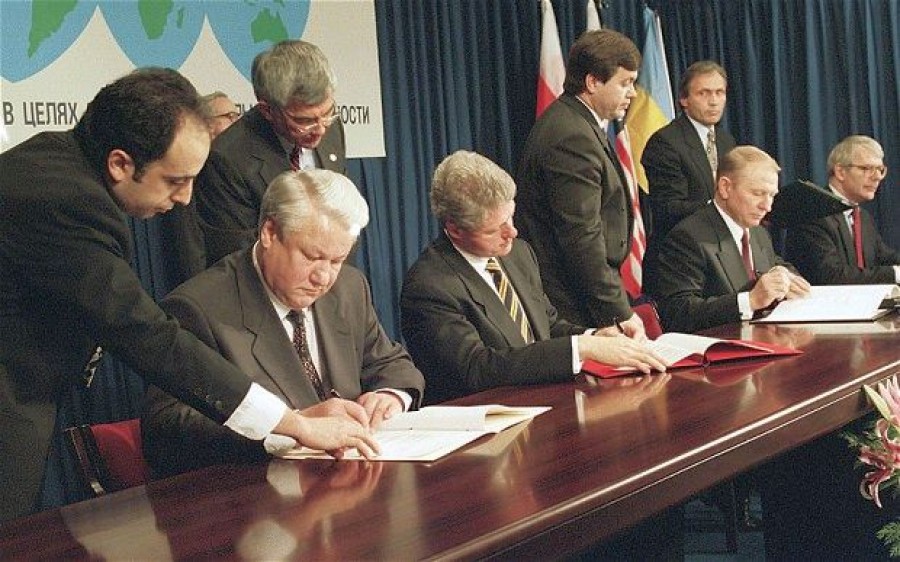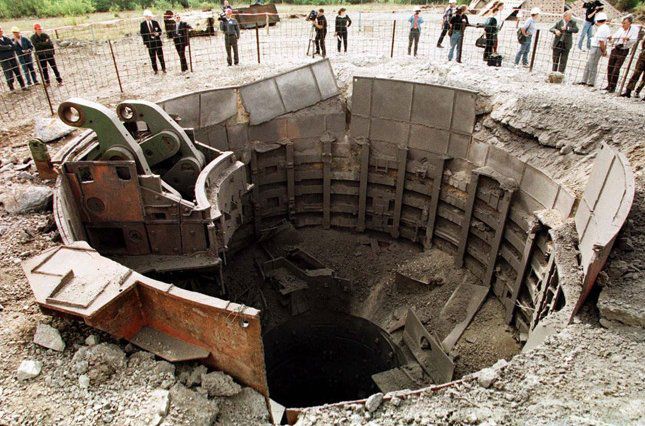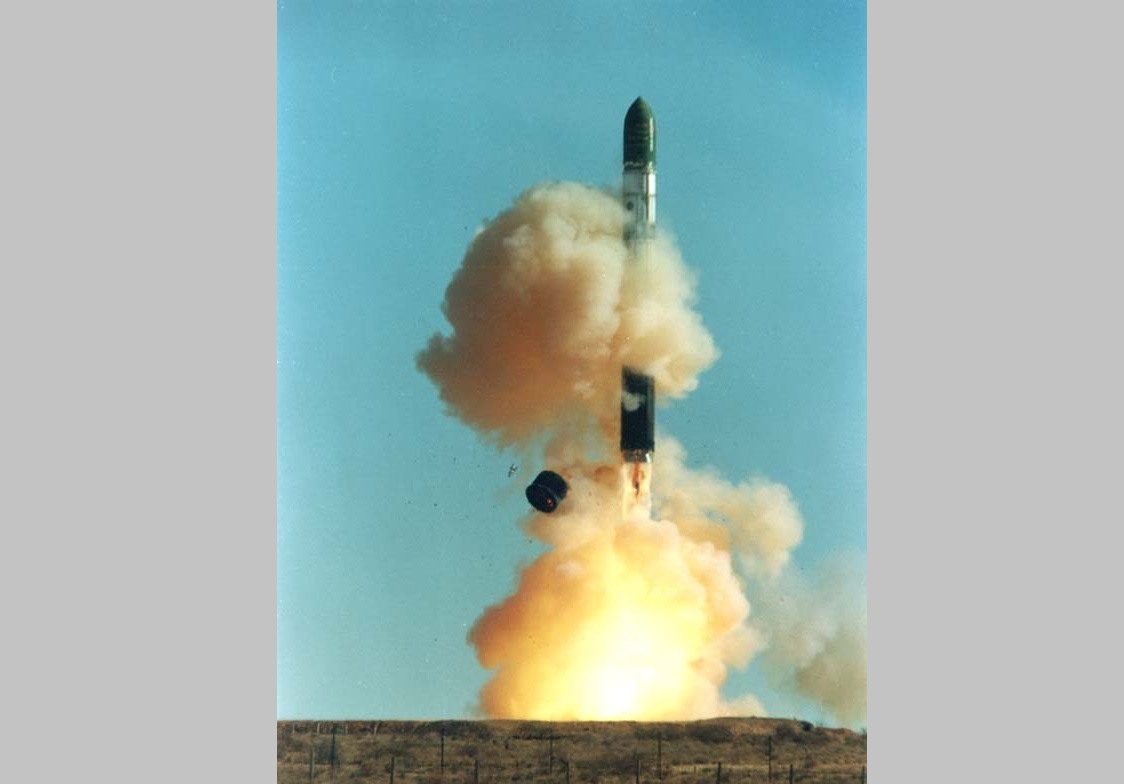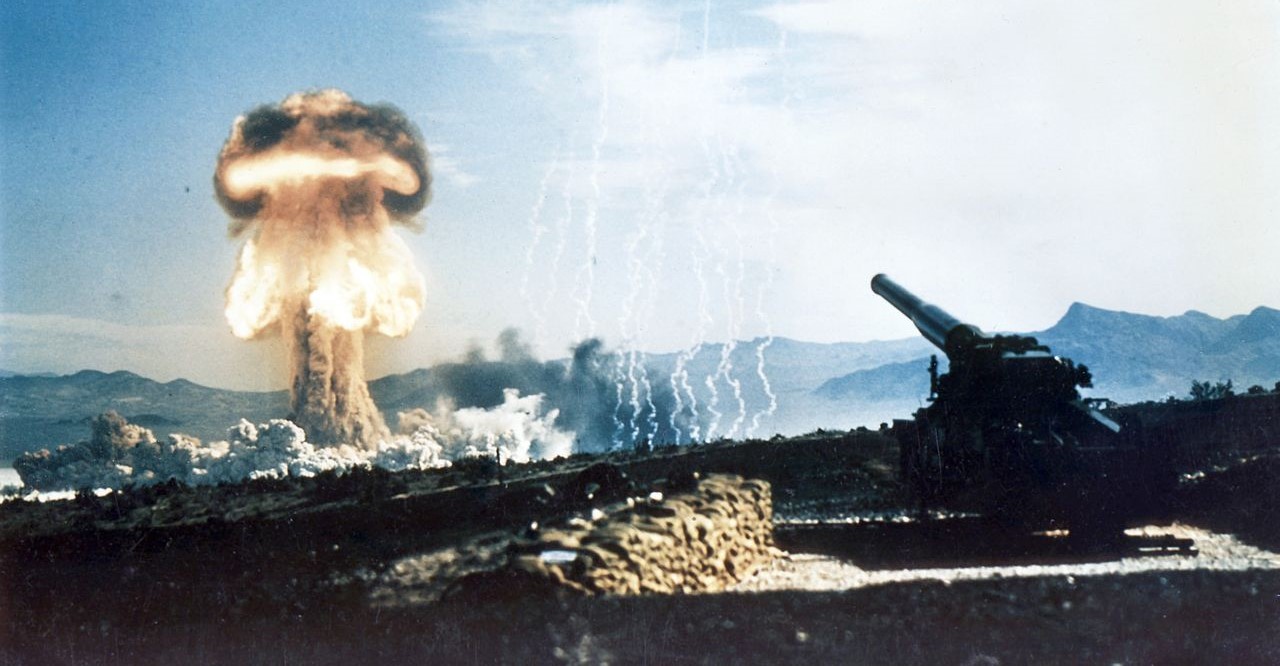The earlier articles in the series are available here:
Following the revelation of the horrific atrocities committed by Russian forces in Bucha and the surrounding areas of Kyiv, President Volodymyr Zelenskyy has admitted that finding a way to peace with Russia will be extremely difficult, if not impossible. In an interview with Ukrainian journalists, aired on television on Tuesday, 5 April, President Zelenskyy stated.
“All of us, including myself, will perceive even the possibility of negotiations as a challenge. The internal challenge, first of all, is one’s own, human. Then, when you pull yourself together, and you have to do it, I think that we have no other choice.”
Over the weekend, President Zelenskyy spoke to CBS’s Face the Nation and conceded,
“It’s difficult to say how, after all what has been done, we can have any kind of negotiations with Russia. But as president, I have to do it. Any war has to end.”
He has since, however, acknowledged, that it “might happen that there will be no negotiations. It might happen.”
A week in war often changes landscapes completely. When peace negotiations between Ukraine and Russia were held in Türkiye on Tuesday, 29 March, members of the Ukrainian delegation signaled that concessions from their side could be forthcoming. A framework was proposed in which the country would acquire a status of neutrality, thus renouncing its bid to join NATO, a stipulation long demanded by Moscow. This neutrality would come in exchange for security guarantees from third-party countries.
These guarantees, either bilateral or multilateral, would entail a commitment from agreed parties to uphold the sovereignty and security of Ukraine should it come under attack in the future
While on Wednesday, German Chancellor Olaf Scholz apparently informed President Volodymyr Zelenskyy that Germany would indeed be willing to assume the role of security guarantor for Ukraine, it was unclear whether this assurance would include military support as well.
On the other hand, the British Deputy Prime Minister Dominic Raab stated clearly that United Kingdom “would not replicate unilaterally the NATO commitments that apply to NATO members.” Sources from both Downing Street and the Ministry of Defense echoed that sentiment.
‘Demilitarization’ of Ukraine was named by Putin as one of the main objectives of his invasion. However, President Zelenskyy has ruled out demilitarization as a bargaining chip and refused to discuss it. Taking into account the history of Ukrainian-Russian relations through the past century, it seems that Zelenskyy has very legitimate reasons for that.
Soon after Ukraine had acquired its independence, the country agreed to relinquish its nuclear weapons in exchange for written security guarantees from Russia, the USA, and the UK. In December 1994, during the OSCE conference in Hungary Ukraine signed the Budapest Memorandum that required the country to give up all Soviet-era nuclear weapons stationed on its territory. At the time, Ukraine was in possession of nearly two thousand strategic nuclear warheads, and it was the third-largest stock of nuclear weapons in the world.
By signing the two-page document Ukraine officially acknowledged that it was aiming at joining the Treaty on the Non-Proliferation of Nuclear Weapons. In exchange, the USA, the UK, and the Russian Federation agreed to provide Ukraine with security guarantees. The signatories confirmed
“their obligation to refrain from the threat or use of force against the territorial integrity or political independence of Ukraine,” as well as “their commitment to seek immediate United Nations Security Council action to provide assistance to Ukraine… if Ukraine should become a victim of an act of aggression or an object of a threat of aggression in which nuclear weapons are used.”
By now, many Ukrainian public figures consider the signing of the Budapest Agreement to be a grave blunder. Only a few days prior to the peace negotiations which reconvened in Türkiye last week, Fedir Venislavsky, President Zelenskyy’s representative to Ukraine’s Constitutional Court, gave an interview to Fox News in which he laid the blame for the war squarely with the co-signatories of the Budapest Memorandum:
“When Ukraine gave up its nuclear potential … Ukraine was confident the other countries who have signed that agreement were going to guarantee its territorial integrity, its independence, and its sovereignty.”
However, it didn’t take place, and as a result, Venislavsky explained, “there is a war … going on in our territory.”
Venislavsky is not the only Ukrainian official who brought up the Memorandum in recent weeks. Addressing the audience at the Munich Security Conference on 19 February, five days before Russia invaded Ukraine, President Zelenskyy enumerated how many times the international community had failed his country within the scope of the Memorandum:
“Since 2014, Ukraine has tried three times to convene consultations with the guarantor states of the Budapest Memorandum. Three times without success. Today Ukraine will do it for the fourth time. I, as President, will do this for the first time. But both Ukraine and I are doing this for the last time … If they do not happen again or their results do not guarantee security for our country, Ukraine will have every right to believe that the Budapest Memorandum is not working and all the package decisions of 1994 are in doubt.”
These are the thoughts that will surely be uppermost in Ukrainian negotiators’ minds as they strive to find common ground on which to compromise with their Russian counterparts. While a ten-point peace plan has been tentatively drawn up, every Ukrainian delegate will be aware that they are engaged in a process that could, potentially, lead the country for a second time into the unenforceable mirage of an agreement.
Yet Russia is not the only signatory to have breached its obligations under the Memorandum. In 1994, the New York Times reported that when US Secretary of State Warren Christopher was asked if the US considered itself a guarantor of Ukraine’s borders, he replied, “The security guarantees do relate to that subject and provide assurance in that connection.”
Unfortunately, the Memorandum does not spell out the exact manner of assistance the signatories are required to provide, which is why, twenty years later, US ambassador Geoffrey Pyatt could contradict Christopher and assert that “the Budapest Memorandum was not an agreement on security guarantees.”
The US has certainly aided, armed and trained Ukraine’s defense personnel, and it has provided $2 billion worth of lethal assistance to the country—including Stinger anti-aircraft and Javelin anti-armor systems, nearly forty million rounds of small arms ammunition, and over one million grenade, mortar, and artillery rounds—since President Biden took office in January 2021.
Yet direct military assistance, such as the institution of a no-fly zone, has been vehemently blocked by Washington, as it refuses to directly engage US Air Force and infantry with Russian troops. For many, this constitutes skirting the pledges of the Memorandum.
In a 2014 article for the Brookings Institute (published just days prior to an Arms Control and Non-Proliferation Initiative panel discussion), Steven Pifer wrote,
“In 1994, Washington wrote Kyiv a check for US support in the Budapest Memorandum—albeit hoping that it would never be cashed. Unfortunately, it has.”
Pifer continued by explaining that the territorial protection promised to Ukraine was not just a question of the US personally fulfilling its legally-endorsed commitments. Even more pressing, he underscored the wider context of these commitments, emphasizing that it was “also about preserving the credibility of security assurances for the future.”
While the US has failed to fulfill the security assurances of the agreement, Russia, certainly, perpetuated the most flagrant transgressions of international law regarding Ukraine, expanding violations beyond the specific scope of the Memorandum. In February 2015, the U.K.’s House of Lords published a 123-page report investigating the events leading up to the Russian annexation of Crimea and incursions in Donbas. Entitled ‘The EU and Russia: before and beyond the crisis in Ukraine’, the report investigates the background to the 2014 crisis, and the conclusions it presents are definitive.
On page 54, the report lists how Russia “undertook a policy of coercive economic diplomacy” in an attempt to undermine the Association Agreement with the EU which Ukraine had been negotiating since 2007. The then acting Ukrainian Ambassador to the UK, Andrii Kuzmenko, is quoted as enumerating
“[a] number of different ‘wars’—a customs war, a gas war, a milk war, a meat war, cheese war, a chocolate war”, which “the Russians started against Ukraine with the solemn purpose of pursuing us to postpone and then refuse European integration.”
These acts were explicit transgressions and infringements of point 3 of the Budapest Memorandum, which assured that signatories would “refrain from economic coercion designed to subordinate to their own interest the exercise by Ukraine of the rights inherent in its sovereignty and thus to secure advantages of any kind.”
Aside from Russia and the US, the 2015 House of Lords’ report also specifically concludes that
“[a]s one of the four signatories of the Budapest Memorandum (1994), which pledged to respect Ukraine’s territorial integrity, the UK had a particular responsibility when the crisis erupted. The Government has not been as active or as visible on this issue as it could have been.”
Thus, all three signatories failed to uphold their obligations under the Memorandum.
As Mr. Pifer observed, the consequences for the credibility of all future security assurances stand in question when signatories fail to uphold the terms of such agreements. Yet this precariousness affects not only security assurances; it strikes at the heart of all accords, covenants, treaties, and pacts.
This point becomes increasingly clear when reading further in the House of Lords’ report. While the committee investigated Russia’s breaches of the Budapest Memorandum, it also highlighted how many other transgressions of international treaties and accords Russia has perpetrated, and the report separately lists a damning succession of subsequent violations of international law which occurred during Russia’s annexation of Crimea. These contraventions include:
- non-intervention provisions in the United Nations Charter;
- the Helsinki Final Act of 1975;
- the 1990 Paris Charter (the tenets of which are that borders of countries are not rewritten by force and all states enjoy equal security and equal rights to choose their own alliances);
- the 1997 Treaty of Friendship, Cooperation and Partnership between Russia and Ukraine (which requires Russia to respect Ukraine’s territorial integrity).
This list is a considerable testament to the Kremlin’s systematic desecration of the rule-of-law-based international order which underpins the democratic peace settlement of the post-second-World-War world. Yet the other two signatories to the Memorandum also failed to uphold the spirit, if not the letter, of the pact signed in Budapest.
The fragility of this order has been exposed as reliant upon the individual compliance of nation-states. The damage done to what are, essentially, articles of faith, cannot be overstated. Neither can the future menace of smaller states who, witnessing the siege of Mariupol, decide to ensure the integrity of their sovereign borders by way of solo, violent, self-protectionist measures. The outlook for nuclear non-proliferation looks bleak in such a landscape, while disarmament talks (especially given Europe’s recent unprecedented increase in defense investment) devolve into futile pantomimes of cynical evasion.
Considering the complexity of the negotiations surrounding the JCPOA Iran nuclear talks, which are currently attempting to revive the 2015 deal, the integrity of international pacts must be recognized as legitimate by all parties and upheld by all nations. The stakes involved in such agreements are too high to withstand infringement.
As Fedir Venislavsky himself testifies,
“After the Ukrainian case, I think there are going to be a lot of doubts in the world regarding international obligations that are given in exchange for whatever concessions.”
The fundamental credibility of the entire international rules-based order is at risk in whatever bitter compromise finally emerges from the Kyiv-Moscow peace negotiations. Whatever the arrangement, the West cannot afford to fail Ukraine again.
Read More:
- Timothy Snyder: If Ukrainians hadn’t fought back, the world would’ve been a much darker place
- “Putin is at war with the West in Ukraine” – historian Hrytsak on the main reason of war
- How realistic is the Ukrainian “peace plan”?
- No NATO aspirations and freezing occupied Crimea for 15 years: Ukrainian position at talks with Russia
- Why the world must stop Putin in Ukraine
- What weapons for Ukraine would help it win the war against Russia





